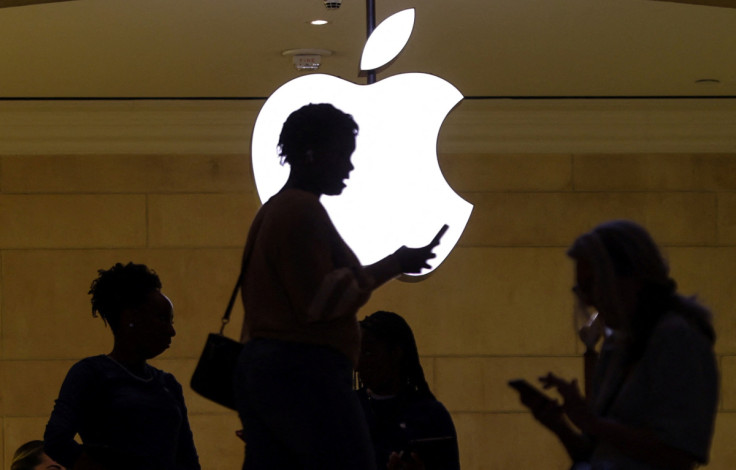Apple Faces Lawsuit For Allegedly Striking Anti-Crypto Deals With Competitors

KEY POINTS
- A new antitrust lawsuit against Apple was filed last week in a California federal court
- It alleged that Apple entered into anti-competitive deals that partially restricted cryptocurrency decentralization capabilities
- In September, Apple was forced to deal with an anti-trust lawsuit in which it was accused of abusing dominance on Apple devices
Tech giant Apple was slapped with a class-action lawsuit, which alleged the company entered into anti-competitive deals and "mirroring agreements" that restrict the use of crypto in payment applications.
The antitrust lawsuit filed last week in a California federal court claimed that Apple strong-armed payment companies Like PayPal, Block and Google into agreements that restricted the decentralized capabilities of cryptocurrencies. This has led to Apple users having to pay higher fees for payment services.
"These agreements limit feature competition—and the price competition that would flow from it—marketwide, including by barring the incorporation of decentralized cryptocurrency technology within existing or new iOS Peer-to-Peer Payment apps," the court filing read.
To support their claims, the plaintiffs cited the Apple App Store Guidelines, where one of the rules stated that apps can engage in crypto transactions only via approved exchanges and in regions that have allowed the app licenses and permissions.
"Apps may facilitate transactions or transmissions of cryptocurrency on an approved exchange, provided they are offered only in countries or regions where the app has appropriate licensing and permissions to provide a cryptocurrency exchange," the Apple App Store guideline read.
Moreover, the plaintiffs argued this particular rule was "designed to prevent payment apps...from implementing decentralized cryptocurrency transfers," since it entailed that transactions should go through intermediaries with custody instead of peer blockchain networks.
Additionally, the lawsuit claimed that Apple's policy prevented other businesses and competitors from entering the market like Zeus and Damus -- both of which were offering peer-to-peer transactions without the need for intermediary exchanges.
"The iPhone is the ideal platform for mobile peer-to-peer payments. Decentralized payments would allow iPhone users to send payments to each other without any intermediary at all—and with transaction costs far lower than what Venmo, Cash App, and Apple ultimately charge to move money to and from bank accounts and credit cards. Despite the obvious utility, there is no means to make decentralized payments on the iPhone. This is because of Apple's control over every app installed[...] through its App Store," the court filing read.
Consumers behind the class-action lawsuit were seeking damages for Apple's alleged overcharging and an injunction to prevent the tech giant from obligating payment apps to restrict cryptocurrency tools.
Apple has not yet issued any statement related to the class-action lawsuit.
The lawsuit comes at a time when Apple is being scrutinized for its anti-competitive distribution practices related to its iOS apps.
In September, Apple was forced to deal with an antitrust lawsuit in which it was accused of abusing dominance on Apple devices.
© Copyright IBTimes 2024. All rights reserved.






















